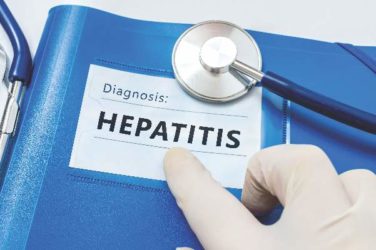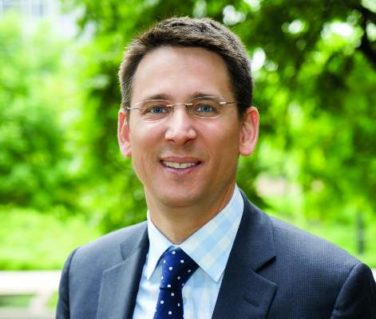Some of the more disturbing behavioral symptoms to present are psychotic symptoms such as auditory or visual hallucination, delusions such as paranoia, or grossly disorganized thought content. Similar to the worry many families will have that a headache is the result of a brain tumor, concern that the psychotic symptoms represent the onset of schizophrenia often creates considerable alarm for families and primary care clinicians alike. In most cases, however, further evaluation suggests causes of psychotic or psychotic-like symptoms other than primary thought disorders.
Case Summary
Ella is an 8-year-old girl who has lived with her adoptive parents for 5 years. She was removed from the care of her birth parents by child protective services because of a history of abuse and neglect. Ella has struggled for many years with a variety of emotional-behavioral problems including inattention, frequent and intense angry outbursts, anxiety, and mood instability. She currently takes a long-acting methylphenidate preparation. Her parents present to her pediatrician because Ella is now reporting that she is seeing “shadows” in her room at night that frighten her. She also has lately stated that she hears a “mean voice” in her head that tells her that she is a bad person. The parents are not aware of specific psychiatric diagnoses in the birth parents, but state that they did have a history of “mental health problems” and were homeless at times. The parents are worried that these symptoms might be early signs of schizophrenia.
Discussion
Accumulating data demonstrates that while psychotic symptoms are relatively common in children and adolescents, childhood-onset schizophrenia actually is quite rare. Estimates of psychotic symptoms in otherwise healthy children have been as high as 5%, with a recent study of adolescents reporting that 15% of the sample reported hearing a voice that commented on what the person was thinking or feeling ( Schizophr. Bull. 2014;40:868-77 ). At the same time, the incidence of childhood-onset schizophrenia is thought to be less than 0.04% based on data from a group at the National Institute of Mental Health ( Child Adolesc. Psychiatr. Clin. N. Am. 2013;22:539-55 ). This group has been actively evaluating and recruiting children with early onset psychosis and finds that more than 90% of their referrals end up with a diagnosis other than schizophrenia.
The differential diagnosis for psychosis is extensive. In terms of nonpsychiatric diagnoses (what in the past were referred to as “organic” causes), possible etiologies include CNS tumors, encephalitis, metabolic disorders, and various genetic conditions, among others. Some medications, such as corticosteroids, stimulants, and anticholinergic medications, also can result in psychotic symptoms, especially at higher doses. While the acute presence of psychotic symptoms in an otherwise healthy child should certainly prompt suspicion of a possible delirium or other nonpsychiatric condition, it is important to note that some of the above etiologies can be associated with other types of behavioral disturbances; thus, the presence of earlier behavioral problems does not rule out the possibility that one of these nonpsychiatric causes is present.
Clinical tip: From our experience at a busy outpatient child psychiatry clinic, it is often not clear whose job it is to rule out nonpsychiatric causes of behavior problems. There is a risk that the psychiatrist assumes that the pediatrician has done this work-up while the pediatrician assumes that this component is part of a psychiatric evaluation. Communication about this role is important. If a third specialist is needed, such as a pediatric neurologist or geneticist, then it is important to clarify who will initiate that consultation as well.
The differential for psychotic symptoms also includes a number of psychiatric conditions other than schizophrenia, such as bipolar or unipolar depression, obsessive-compulsive disorder, posttraumatic stress disorder, autism, or an eating disorder. Substance use, particularly cannabis, also needs to be strongly considered. A child psychiatrist or other mental health professional can be very helpful here to help decipher what are sometimes subtle differences in the nature and content of the psychotic symptoms between various diagnoses. Receptive and expressive language disorders also can be present in many youth who experience psychotic symptoms.
The decision of if and when to begin treatment with an antipsychotic medication can be a difficult one and should be made very thoughtfully and with the help of consultation. The concern that a longer duration of untreated psychosis may be related to a more protracted course needs to be weighed against other data suggesting that using as little medication as possible may predict higher levels of future functioning ( JAMA Psychiatry 2013;70:913-20 ). It is important to note that there are many nonpharmacological interventions that also can be helpful, including individual and family psychotherapy, family education, school modifications, and other social supports.
Case follow-up
Ella was referred to a child psychologist who performed an evaluation and thought that the patient’s symptoms were most representative of posttraumatic stress disorder. She began treatment with trauma-focused cognitive-behavioral therapy (TF-CBT) which led to a reduction in both her anxiety and psychotic-sounding symptoms.
Dr. Rettew is an associate professor of psychiatry and pediatrics at the University of Vermont, Burlington. Dr. Rettew said he has no relevant financial disclosures. Follow him on Twitter @pedipsych. E-mail him at pdnews@frontlinemedcom.com.




